Search Results
Showing results 1 to 20 of 34
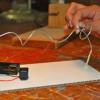
Circuit Game
Source Institutions
In this activity, learners build a game that tests their steadiness. Learners construct the game board by setting up an electrical circuit and a wand.

Battleships: Searching Algorithms
Source Institutions
This activity explores the main algorithms that are used as the basis for searching on computers, using different variations on the game of battleships.
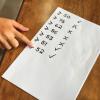
Guess My Number
Source Institutions
In this game, learners experience how computers divide a big problem into many smaller ones and how they use binary "yes"/"no" questions.
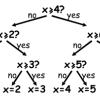
Twenty Guesses: Information Theory
Source Institutions
This activity introduces the idea that computer scientists measure information by how "surprising" a message is.
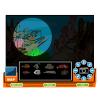
Underwater ROV
Source Institutions
In this online Flash game, learners will explore a coral reef using an underwater remotely operated vehicle (ROV).
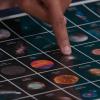
Exploring the Universe: Space Guess Quest
Source Institutions
Space Guess Quest is a fun game that encourages participants to identify the many types of objects in space, from human-made spacecraft to nebulas, galaxies, stars, and worlds.

Building Bingo
Source Institutions
In this on site "field trip" activity (located on pages 6-9 of PDF), learners get hands-on experience identifying building materials by playing "Building Bingo".
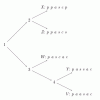
Phylogenetics
Source Institutions
This activity lets learners participate in the process of reconstructing a phylogenetic tree and introduces them to several core bioinformatics concepts, particularly in relation to evolution.
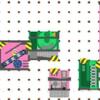
Mechanical Madness
Source Institutions
In this online Flash game, learners test their engineering know-how, moving a collection of mechanical parts onto a board to make complete a system of parts that will move a ball from start to finish.

Artificial Intelligence: The Intelligent Piece of Paper
Source Institutions
This activity explores what it means for a computer to be intelligent and introduces the topic of what a computer program is and how everything computers do simply involves following instructions writ
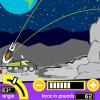
Planetary Rescue Squad
Source Institutions
This is an online Flash game where learners can experiment with ballistics and how to compensate for the varying levels of gravity found on the planets of our Solar System.
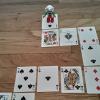
Coding Algorithms
Source Institutions
In this activity, learners will code an algorithm to make it through a maze.
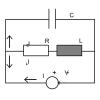
Wire Maze
Source Institutions
Learners create an electrical-circuit maze out of wire, then try to pass a paperclip through the maze without touching the wire.

I Spy Nano!
Source Institutions
In this game, learners try to find nano-related objects on a game board. Learners investigate the different ways nano is in the world around us.

Exploring Fabrication: Self-Assembly
Source Institutions
In this activity, learners participate in several full-body interactive games to model the process of self-assembly in nature and nanotechnology.
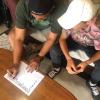
Guess the Sentence
Source Institutions
In this activity, learners play a game similar to Hangman by guessing a secret phrase to understand how computer scientists measure the amount of "information" in a document.
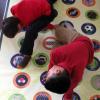
Exploring Size: StretchAbility
Source Institutions
In this game, learners explore the different sizes of things in the world. In this Twister-like game, learners must place a hand or foot on a circle of the right scale - macro, micro, or nano.
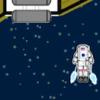
So Many Parts
Source Institutions
In this online Flash game and spacewalk mission simulation, learners are challenged to repair parts of a space station while balancing their oxygen and fuel use carefully.
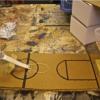
Finger Basketball
Source Institutions
In this activity, learners build mini-basketball courts using cardboard and measuring spoons. Use this activity to introduce learners to catapults, forces, and levers.
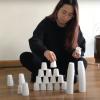
Cup Towers
Source Institutions
In this activity, learners explore different ways to stack cups to meet a personal goal.
